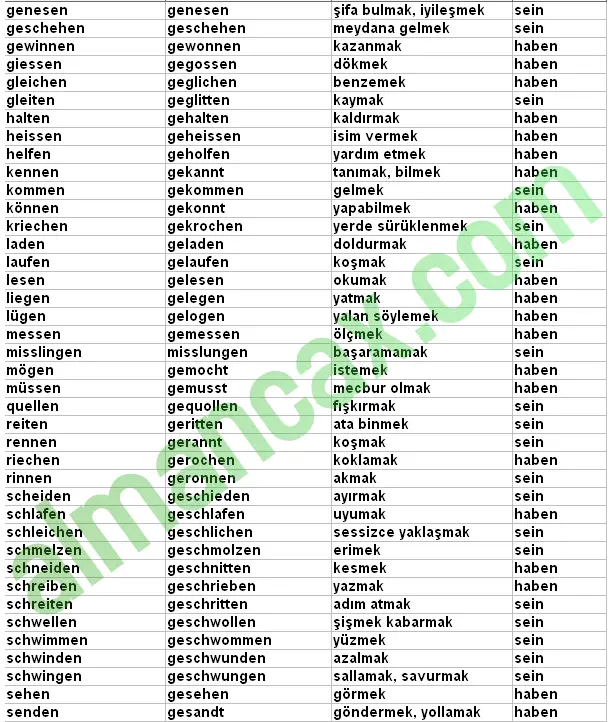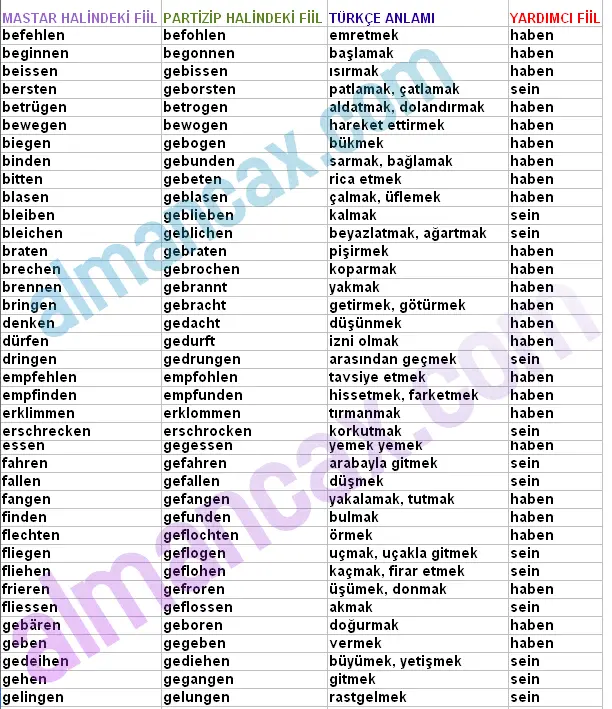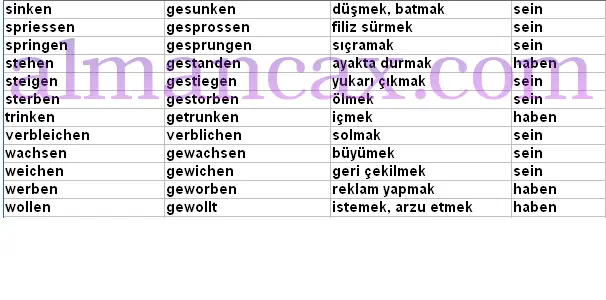German perfekt

In this course titled German Perfekt lecture, we will give summary information about perfekt time in German.
We have seen it before, Perfekt means past tense with -di like Präteritum. As you know, past tense sentences describe actions that have been done and finished in the past.
We have done a very detailed and annotated lesson on perfekt in German before, if you want to examine that subject, click here: German Perfekt
As mentioned before, there are certain differences between Perfekt and Präteritum in German; Präteritum is generally used in written language, it is used in idioms, it is widely used in fairy tales, novels or stories, Perfekt is used in spoken language, not in works such as novels and stories.
You may be interested in: Would you like to learn the easiest and fastest ways to make money that no one has ever thought of? Original methods to make money! Moreover, there is no need for capital! For details CLICK HERE
These two times can express all past tenses by place, with the exception of past tense.
For example, they can cover times like "work", "work", "work" but they are not used for "work" or "work".



You may be interested in: Is it possible to make money online? To read shocking facts about earning money apps by watching ads CLICK HERE
Are you wondering how much money you can earn per month just by playing games with a mobile phone and internet connection? To learn money making games CLICK HERE
Would you like to learn interesting and real ways to make money at home? How do you make money working from home? To learn CLICK HERE
In the above tables, the infinitive form of the verb is included in the first column (on the far left), in the second column the verb is Partizip Perfekt, this is the part that will be used to make a sentence in Perfekt. Partizip Perfekt of each verb should be memorized. In the third column from the left, the Turkish equivalent of the verb is given. In the last column, the auxiliary verb to be used with this verb is shown.
In Perfekt, mostly the auxiliary verb "haben" is used, we tried to mention almost all of the irregular verbs used with "sein" above. Therefore, it will most likely be correct to use haben with a verb not included in the table above.
For more detailed lecture German Perfekt Check out our topic named.
